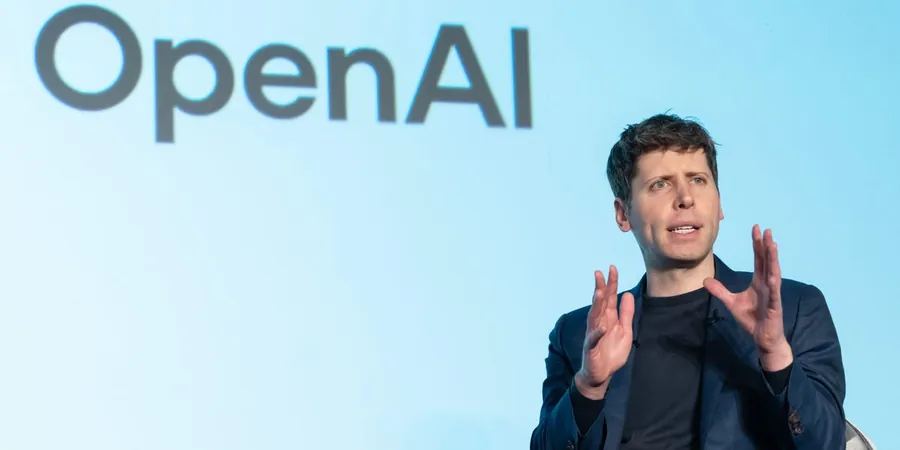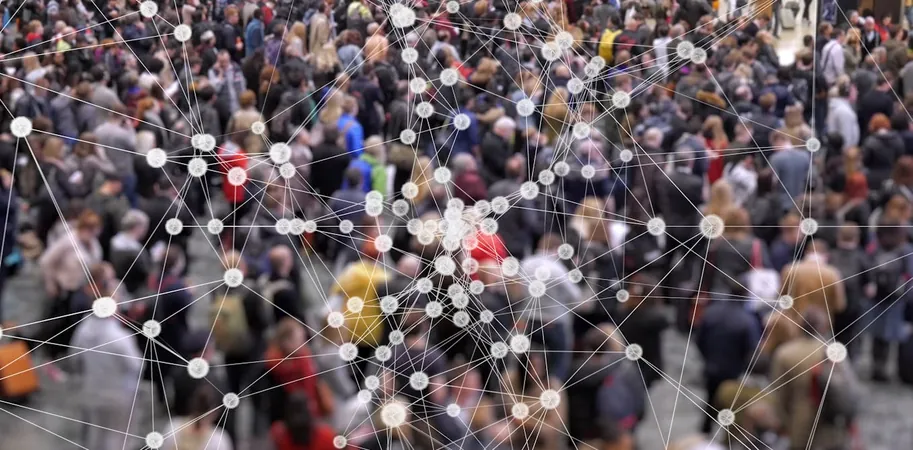
OpenAI's Game-Changing Revelation: GPT-4 Rebuild Possible with Just 5 to 10 People!
2025-04-11
Author: Daniel
In a stunning twist for the tech world, OpenAI has revealed that it could reconstruct its powerful GPT-4 model with a mere team of five to ten people, thanks to groundbreaking advancements gleaned from its latest innovation, GPT-4.5.
During a recent podcast, OpenAI CEO Sam Altman posed an intriguing question to top engineers behind GPT-4.5: How small a team would it take to retrain GPT-4 from scratch? Surprisingly, the response indicated a significant downsizing from the hundreds of people involved in the original development.
Alex Paino, who spearheaded machine learning for GPT-4.5, emphasized that training GPT-4 again would likely require only a handful of skilled minds, stating, "We trained GPT-4o, a model of similar caliber, using a fraction of the resources we once did." This revelation marks a shift in how AI models can be developed more efficiently than ever before.
Daniel Selsam, a data efficiency expert at OpenAI, echoed Paino's insights, commenting on the newfound ease of replicating past feats in AI construction. He noted, "Realizing that something is achievable is a massive advantage in the tech landscape." It's clear that the breakthroughs from GPT-4.5 are revolutionizing the approach to model training.
OpenAI's release of GPT-4.5 earlier this year, touted as the most advanced AI model to date, has set the stage for unprecedented capabilities. Altman described it as "the first model that feels like conversing with an intelligent being," while Paino revealed that GPT-4.5 is designed to be ten times smarter than its predecessor.
A pivotal statement from Altman highlighted a new era in AI development: OpenAI is no longer “compute-constrained.” This is a game-changer that could reshape the industry’s understanding of AI capabilities. With tech giants like Microsoft and Google expected to invest $320 billion into AI infrastructures this year alone, OpenAI is positioned to take full advantage.
In an eye-popping funding round, OpenAI secured $30 billion from SoftBank and $10 billion from other investors, propelling its valuation to $300 billion. With this capital, the company is set to dramatically expand its computational power.
Nvidia CEO Jensen Huang predicts that the demand for AI computation will continue to surge, as reasoning models require exponentially more computational resources. Moving forward, researcher Selsam believes that improving data efficiency will be crucial for achieving the next monumental leap in AI models. As data becomes a bottleneck, innovative algorithms will be needed to extract maximum value from each dataset.
This evolving narrative positions OpenAI not just as a leader in AI but as a pioneer, reshaping how machines learn and understand. Witnessing this transformation is not just exciting—it's a glimpse into the future of artificial intelligence.






 Brasil (PT)
Brasil (PT)
 Canada (EN)
Canada (EN)
 Chile (ES)
Chile (ES)
 Česko (CS)
Česko (CS)
 대한민국 (KO)
대한민국 (KO)
 España (ES)
España (ES)
 France (FR)
France (FR)
 Hong Kong (EN)
Hong Kong (EN)
 Italia (IT)
Italia (IT)
 日本 (JA)
日本 (JA)
 Magyarország (HU)
Magyarország (HU)
 Norge (NO)
Norge (NO)
 Polska (PL)
Polska (PL)
 Schweiz (DE)
Schweiz (DE)
 Singapore (EN)
Singapore (EN)
 Sverige (SV)
Sverige (SV)
 Suomi (FI)
Suomi (FI)
 Türkiye (TR)
Türkiye (TR)
 الإمارات العربية المتحدة (AR)
الإمارات العربية المتحدة (AR)